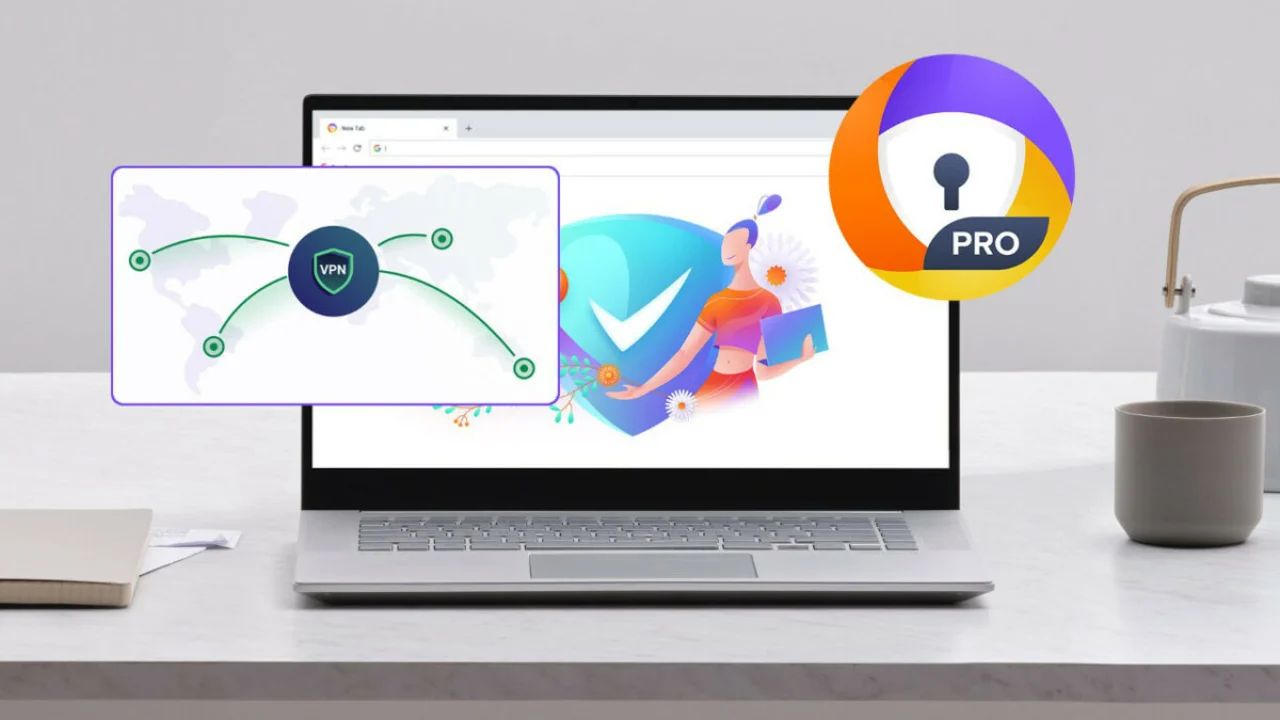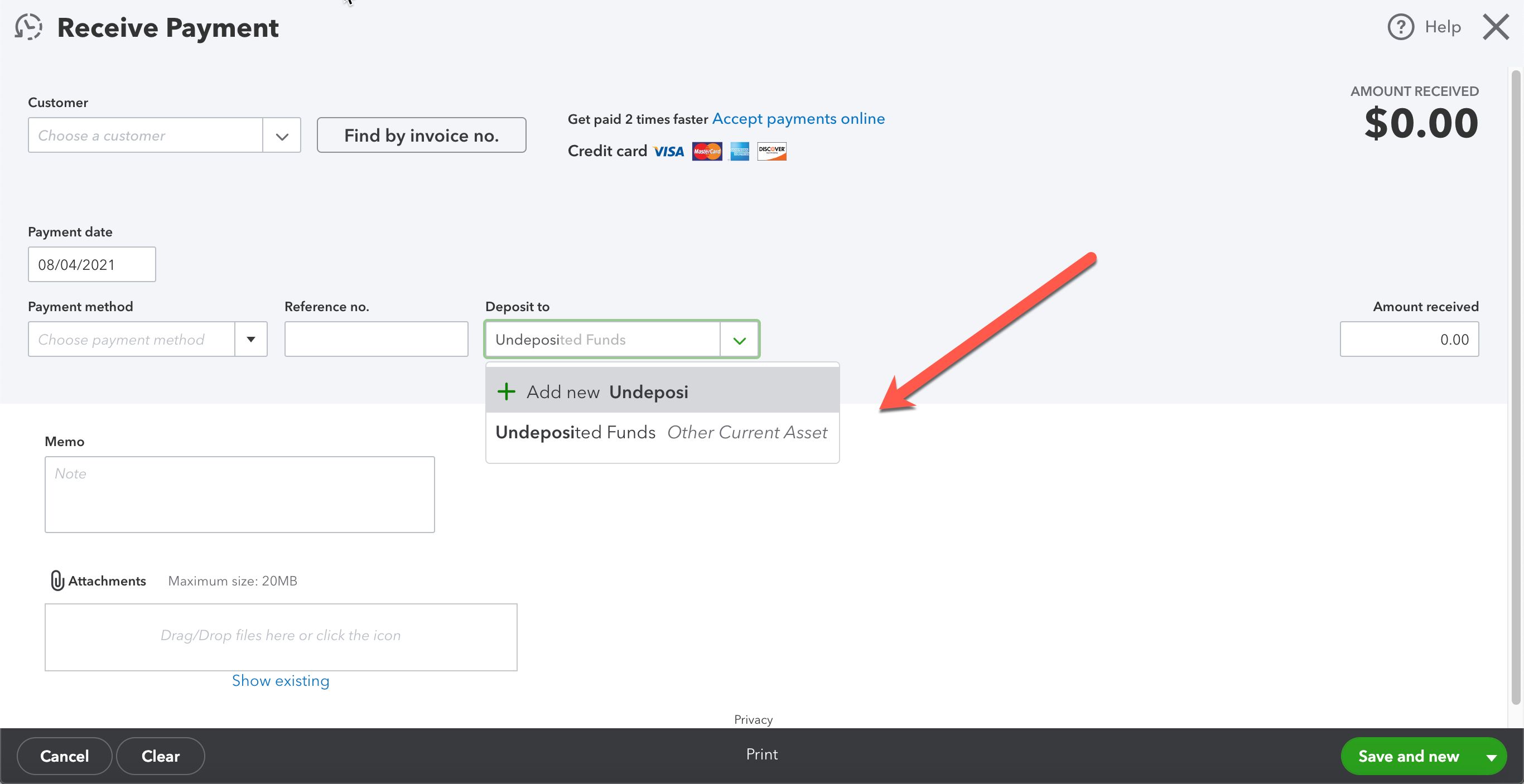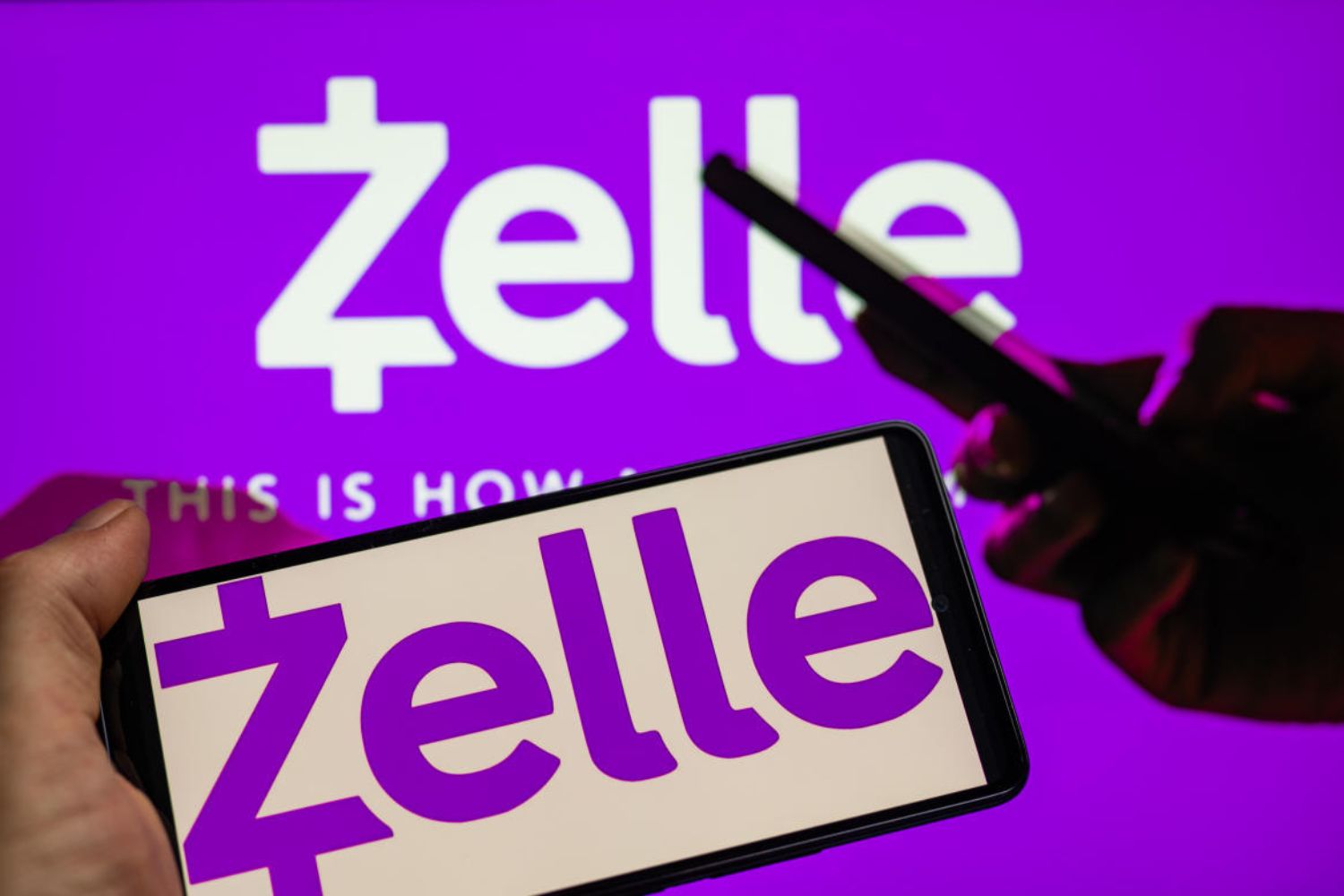Introduction
Welcome to the digital age, where technology has transformed almost every aspect of our lives. From shopping and entertainment to communication and even banking, the internet has revolutionized the way we manage our finances. Online banking has rapidly gained popularity and become an essential part of modern life.
Online banking, also known as internet banking or e-banking, enables individuals and businesses to access their bank accounts and conduct various financial transactions via the internet. Gone are the days of visiting brick-and-mortar banks during limited business hours; online banking offers a multitude of benefits that make managing your finances easier and more efficient.
With just a few clicks, you can check your account balance, transfer funds, pay bills, and even apply for loans or credit cards. The convenience, accessibility, and time-saving advantages of online banking are hard to ignore. Furthermore, the ever-evolving technology ensures that online banking platforms are secure and provide a seamless user experience.
So, why is online banking important? Let’s delve into the top reasons why millions of individuals and businesses now rely on online banking as their primary method of managing their financial affairs.
Convenience
One of the primary reasons why online banking is important is the convenience it offers. Instead of having to physically visit a bank branch during limited operating hours, you can access your accounts online at any time, from anywhere in the world. Whether you’re at home, at work, or on the go, all you need is a computer, smartphone, or tablet with an internet connection.
Gone are the days of standing in long queues or rushing through traffic to make it to the bank before it closes. With online banking, you have the flexibility to manage your finances at your own pace. Whether it’s checking your account balance, reviewing transaction history, or transferring funds between accounts, all the information and tools you need are easily accessible with a few clicks.
Furthermore, online banking eliminates the need for paper statements and physical records. You can view your account statements, update personal information, and even download transaction reports directly from your online banking portal. This not only saves you time but also helps in reducing paper waste and contributes to a more environmentally friendly approach to banking.
Moreover, online banking allows you to set up automatic bill payments, ensuring that your recurring expenses are taken care of effortlessly. You no longer have to remember to write and mail checks or visit various payment centers. Instead, you can schedule bill payments in advance or set up recurring payments to be deducted automatically from your account, giving you peace of mind and helping you avoid late payment fees.
In summary, the convenience of online banking cannot be overstated. It provides round-the-clock access to your accounts, eliminates the need for physical visits to the bank, simplifies financial management tasks, and helps you stay organized with automated payment options. Online banking puts the power of managing your finances in the palm of your hand.
Accessibility
Another significant advantage of online banking is the enhanced accessibility it offers compared to traditional banking methods. With online banking, you can access your financial information and perform transactions anytime and anywhere, as long as you have an internet connection.
No longer do you have to be limited by the operating hours of physical bank branches. Online banking platforms are available 24/7, meaning you can manage your accounts and carry out transactions at your convenience, even outside of regular business hours. This flexibility allows you to stay in control of your finances without being tied to a specific location or time.
Additionally, online banking offers multiple ways to access your accounts. Whether you prefer using a desktop computer, a laptop, a tablet, or a smartphone, most banks have optimized their online banking platforms to work seamlessly across various devices and operating systems. This means that whether you’re at home, in the office, or on the go, you can access your accounts easily and securely.
Moreover, online banking provides multi-channel access options. Most banks offer not only website-based online banking but also dedicated mobile applications. These apps are specifically designed for mobile devices and provide a user-friendly interface optimized for smaller screens. With mobile banking apps, you can check your balance, transfer funds, pay bills, and even deposit checks by simply using your smartphone or tablet.
The accessibility of online banking extends beyond just managing your accounts. Many banks now offer additional services through their online platforms, such as applying for loans or credit cards, opening new accounts, and even contacting customer support via secure messaging systems. This eliminates the need to visit a physical bank branch for basic banking needs, saving you time and effort.
In short, the accessibility provided by online banking allows you to stay connected to your finances no matter where you are. With 24/7 availability, support for multiple devices, and a wide range of services offered online, managing your accounts has never been easier.
Time-saving
Time is a valuable resource in today’s fast-paced world, and online banking is designed to help you save precious time when it comes to managing your finances. Traditional banking methods often require trips to physical branches, waiting in long queues, and filling out numerous forms. Online banking streamlines these processes, allowing you to perform various financial tasks quickly and efficiently.
With online banking, there’s no need to waste time commuting to a brick-and-mortar bank branch or waiting in line. You can access your accounts instantly from the comfort of your home or office. Checking your account balance, reviewing transaction history, and monitoring account activity can all be done within a matter of seconds. The convenience of having all this information readily available at your fingertips saves you significant amounts of time.
In addition, online banking offers the ability to make quick and secure transactions. Whether you want to transfer funds between accounts, pay bills, or send money to a friend or family member, online banking allows you to do so with just a few clicks. No more writing checks or filling out paper forms; online transactions are processed almost instantly, saving you the hassle of manual paperwork and reducing the time it takes for payments to be completed.
Online banking also reduces the time spent on financial record-keeping. With access to digital statements, transaction history, and account summaries, you can easily track your expenses and income without the need for manual record-keeping. Additionally, online banking platforms often provide tools and features that help you analyze your spending patterns, set budget goals, and track your financial progress, all of which further contribute to saving time and improving your financial management.
Furthermore, online banking offers the convenience of scheduling and automating your financial tasks. You can set up recurring payments for bills or loan installments, ensuring they are paid on time without needing your intervention. This eliminates the need to remember due dates and manually initiate payments each month, freeing up valuable time that can be better spent on other important tasks.
In summary, online banking is a time-saving solution that simplifies financial management, eliminates the need for physical visits to bank branches, streamlines transactions, automates tasks, and provides instant access to financial information. By utilizing online banking, you can optimize your time and focus on other priorities in your life.
Cost-saving
Online banking not only offers convenience and time-saving benefits but also provides significant cost-saving opportunities for individuals and businesses alike.
Firstly, online banking eliminates the need for costly paper transactions. Traditional banking methods often involve printing physical checks, obtaining money orders, or mailing paper statements. These processes not only consume paper but also incur expenses for printing, postage, and other related costs. With online banking, most transactions can be processed electronically, reducing the need for paper checks and minimizing associated expenses.
Additionally, online banking helps to reduce transportation expenses. By conducting financial transactions online, you no longer have to drive to bank branches or other payment centers, saving on fuel costs and vehicle maintenance. Whether it’s paying bills, transferring funds, or doing other banking activities, all can be accomplished from the comfort of your own home or office, eliminating the need for physical travel.
Online banking also removes the need for manual record-keeping. Physical paper statements and receipts can easily be lost or damaged, leading to additional costs and inconvenience. With online banking, you can access and store your account statements, transaction history, and financial documents electronically, eliminating the need for physical storage and reducing the risk of misplacing important paperwork.
An often overlooked cost-saving aspect of online banking is the ability to compare rates and fees easily. By accessing multiple banking institutions online, you can compare interest rates, fees, and terms for various products and services. This allows you to make informed decisions and choose the options that are most beneficial and cost-effective for your financial needs.
Furthermore, online banking platforms often offer additional services and benefits that can help you save money. These can include online budgeting tools, financial calculators, and alerts for low balances or fraudulent activities. By utilizing these features, you can better manage your finances, avoid unnecessary fees, and stay on top of your financial goals without having to rely on external financial advisors or spend money on specialized software.
In summary, online banking provides various cost-saving opportunities by reducing the need for paper transactions, minimizing transportation expenses, eliminating manual record-keeping, facilitating easy comparison of rates and fees, and offering additional tools and services for financial management. By taking full advantage of online banking, you can save money and improve your overall financial well-being.
Security
When it comes to managing our finances, security is of utmost importance. Online banking platforms have taken significant measures to ensure the safety and confidentiality of your financial information.
Online banking employs a variety of security measures to protect your data. This includes encryption, firewalls, and secure socket layer (SSL) technology. These mechanisms help in encrypting sensitive information transmitted between your device and the banking server, making it difficult for unauthorized parties to intercept and decode the data.
In addition, online banking platforms often implement multi-factor authentication (MFA) protocols. MFA requires multiple pieces of information to verify your identity and authorization. This can include a combination of passwords, security questions, one-time passcodes, or even biometric identifiers such as fingerprints or facial recognition. These extra layers of security make it significantly more challenging for unauthorized individuals to access your accounts.
Moreover, online banking platforms continuously monitor and detect suspicious activities. Automated systems are in place to flag and investigate any unusual or potentially fraudulent transactions. If any suspicious activity is detected, real-time alerts can be sent to your registered email address or mobile phone, allowing you to respond quickly and take appropriate actions to protect your accounts.
It is important to note that online banking also helps in reducing the risk associated with physical documents. Physical papers, such as checks and statements, can be easily lost or stolen, compromising your financial security. By managing your financial transactions online, you can minimize the need for physical documents, reducing the risk of them falling into the wrong hands.
It is crucial to exercise caution and follow safe online banking practices. This includes using strong and unique passwords, regularly updating your devices and software, and being cautious of phishing attempts or suspicious emails claiming to be from your bank. Most reputable online banking platforms provide guidelines and education on how to protect yourself from common online threats, ensuring that you are well-informed about potential risks and how to mitigate them.
In summary, online banking platforms prioritize the security of your financial information. Encryption, multi-factor authentication, real-time monitoring, and user education are just some of the measures implemented to safeguard your accounts. By using online banking services responsibly and following recommended security practices, you can enjoy the peace of mind in knowing that your financial information is protected.
Control and Monitoring
Online banking provides you with an unprecedented level of control and monitoring over your financial transactions and accounts. With just a few clicks, you can access a wide array of tools and features that enable you to stay on top of your finances.
One of the key advantages of online banking is the ability to monitor your accounts in real-time. You can check your balances, view transaction history, and track incoming and outgoing funds. This allows you to have a clear understanding of your financial position at any given moment. You no longer need to wait for monthly statements or visit the bank to obtain this information; it is readily available to you with online banking.
Furthermore, online banking platforms often provide the option to set up customized alerts and notifications. You can choose to receive alerts for specific activities, such as when a large withdrawal is made, when a bill payment is due, or when your account balance falls below a certain threshold. These alerts help you stay informed and enable you to take immediate action if needed.
In addition to monitoring, online banking gives you greater control over your funds. You can initiate transactions, such as transferring money between accounts, paying bills, or setting up direct deposits, at your convenience. Unlike traditional banking methods, which typically require visits to a branch or waiting for checks to clear, online banking allows you to carry out these tasks quickly and efficiently.
Online banking platforms also provide you with the ability to manage your financial goals. Whether it’s saving for a down payment on a house, planning for retirement, or simply setting aside funds for an upcoming vacation, online banking tools can help you track your progress and allocate funds accordingly. You can set up automatic transfers to your savings account or create separate sub-accounts for specific goals, making it easier than ever to stay disciplined and focused on your financial objectives.
Moreover, online banking allows you to easily access and review past statements and transactions. If you need to reconcile your accounts or track down a specific transaction, you can search through your online banking portal to find the information you need. This eliminates the need to sift through piles of paper statements or visit a bank branch for assistance.
In summary, online banking puts you in the driver’s seat when it comes to controlling and monitoring your financial activities. With real-time access to your accounts, customizable alerts, transaction capabilities, and the ability to track your financial goals, online banking empowers you to stay informed, organized, and in control of your financial well-being.
Mobile Banking
In today’s fast-paced world, we rely heavily on our mobile devices for various tasks, and managing our finances is no exception. Mobile banking, a subset of online banking, allows you to access your accounts and perform financial transactions using your smartphone or tablet.
With the advent of mobile banking apps, you have the convenience of managing your finances on the go. These apps are specifically designed to provide a user-friendly interface optimized for smaller screens, ensuring a seamless and intuitive experience. Whether you’re waiting in line, commuting, or simply lounging at home, you can easily check your account balance, view recent transactions, and initiate transfers using your mobile banking app.
Mobile banking apps offer a range of features that make managing your finances easier than ever. You can deposit checks by simply taking a photo, eliminating the need to visit a physical bank branch or ATM. You can set up and manage bill payments, ensuring your recurring expenses are taken care of without the need for manual intervention. Additionally, many mobile banking apps offer budgeting tools, allowing you to track your spending, set financial goals, and receive personalized insights and recommendations to help you stay on track.
One of the greatest benefits of mobile banking is the ability to receive real-time notifications and alerts on your mobile device. You can set up alerts for various activities, such as large transactions, account balance changes, or upcoming bill payments. These alerts help you stay informed and enable you to take immediate action if there are any suspicious or unauthorized activities on your account.
Security is a top priority in mobile banking, and banks employ advanced encryption and authentication measures to ensure the safety of your financial information. Mobile banking apps often utilize biometric authentication, such as fingerprints or facial recognition, to provide an additional layer of security. With these measures in place, you can have peace of mind knowing that your financial data is protected.
Mobile banking also offers the ability to link your accounts with other financial apps and platforms, making it easier to track your overall financial health. You can connect your mobile banking app with budgeting apps, investment platforms, or expense trackers, allowing you to have a holistic view of your financial situation and make informed decisions.
In summary, mobile banking offers the convenience and flexibility of managing your finances anytime, anywhere. With mobile banking apps, you can access your accounts, deposit checks, pay bills, receive real-time notifications, and utilize a range of features that enhance your financial management. Mobile banking puts the power of financial control at your fingertips, allowing you to stay connected and in control of your money.
Payment Options
Online banking provides a wide range of payment options that make managing your finances easier and more convenient. Whether you need to pay bills, make purchases, or send money to friends and family, online banking offers various methods to facilitate these transactions.
One of the most common payment options in online banking is electronic fund transfers. With just a few clicks, you can transfer money between your own accounts or to another person’s account. This eliminates the need for physical checks or cash, saving you time and reducing the risk of errors or loss. Electronic fund transfers are typically processed quickly, allowing for fast and efficient movement of funds between accounts.
Additionally, online banking provides the convenience of bill payment services. You can set up recurring bill payments, such as utilities, rent, or credit card bills, to be paid automatically on a specified date. This helps in avoiding late payment fees and ensures that your bills are taken care of without the need for manual intervention. Many online banking platforms also offer a bill pay feature that allows you to pay bills directly through their platform, consolidating your payment activity in one place.
Furthermore, online banking often integrates with various payment gateways, such as PayPal, Apple Pay, or Google Pay. This allows you to make secure online purchases using your linked bank accounts or debit/credit cards. With a few clicks or taps, you can complete purchases without the need to manually enter your payment details each time, saving you time and providing added convenience.
Online banking platforms also offer person-to-person (P2P) payment options. Whether you need to send money to a family member, split a bill with friends, or reimburse someone for a shared expense, P2P payments allow for quick and easy transfers. These payments can be made using the recipient’s email address, phone number, or even their social media handle, making it convenient to send and receive funds digitally.
Additionally, online banking platforms often provide the option to link your accounts with external payment services, such as Venmo or Zelle. This allows you to access these services directly from your online banking portal, making it seamless to transfer funds between your accounts and external platforms.
In summary, online banking offers a wide range of payment options, including electronic fund transfers, recurring bill payments, integration with payment gateways, P2P payments, and linking to external payment services. These options provide flexibility, convenience, and security when it comes to managing your payments and financial transactions.
24/7 Services
One of the key advantages of online banking is the availability of 24/7 services. Unlike traditional banks with limited business hours, online banking platforms operate round the clock, allowing you to access your accounts and perform transactions at any time of the day or night.
This constant availability is particularly beneficial for individuals with busy schedules, those who work unconventional hours, or those who live in different time zones. Regardless of your location or the time of day, you can log in to your online banking portal and manage your finances at your convenience.
With online banking, you no longer have to wait for a bank branch to open or rush to complete your financial tasks before closing time. Whether you need to check your account balance, transfer funds, or pay bills, you can do so whenever it suits you. This flexibility allows for better financial management and reduces the stress associated with time constraints.
In addition to basic banking services, online banking platforms offer customer support 24/7. If you encounter any issues or have inquiries, you can reach out to a customer service representative at any time. This ensures that you receive timely assistance and support when you need it, without having to wait for the next business day or visit a physical branch in person.
Another benefit of 24/7 services is the ability to react to any unexpected financial situations or emergencies. Whether it’s monitoring your account for fraudulent activities, freezing your card if it’s lost or stolen, or transferring funds for urgent payments, online banking provides the flexibility to handle these situations promptly, even outside of normal business hours.
Furthermore, online banking platforms often offer additional features and tools that are available 24/7. These can include budgeting tools, financial calculators, investment platforms, and educational resources. Having access to these tools at any time allows you to stay informed, make informed financial decisions, and work towards your financial goals at your own pace.
In summary, online banking’s 24/7 services provide you with the freedom and flexibility to manage your finances on your schedule. Whether it’s basic banking services, customer support, or accessing additional tools and resources, online banking ensures that your financial needs can be met anytime, anywhere.
Conclusion
Online banking has become an indispensable tool for managing our finances in the digital age. With its convenience, accessibility, time-saving features, cost-saving opportunities, enhanced security, control and monitoring options, mobile banking capabilities, versatile payment options, and 24/7 services, online banking offers a multitude of benefits that make it an essential part of modern life.
Gone are the days of visiting physical bank branches and waiting in long queues. Online banking allows us to access our accounts and perform various financial tasks with just a few clicks, providing us with unparalleled convenience and flexibility. Whether we are at home, at work, or on the go, we can stay connected to our finances and manage them efficiently.
Online banking not only saves time but also minimizes costs associated with paper transactions, transportation, and manual record-keeping. With its secure encryption, multi-factor authentication, and continuous monitoring, online banking prioritizes the safety and confidentiality of our financial information.
Through online banking, we have greater control over our funds, the ability to monitor our accounts in real-time, and access to various financial tools and services that empower us to make informed decisions and work towards our financial goals.
Mobile banking takes the convenience of online banking a step further, allowing us to manage our finances on the go through dedicated apps optimized for mobile devices. The wide range of payment options offered in online banking makes it easier than ever to pay bills, make purchases, and transfer funds securely.
Finally, the 24/7 availability of online banking ensures that we can access our accounts, perform transactions, and receive assistance whenever we need it, regardless of the time of day or our geographical location.
In conclusion, online banking is not just a modern convenience; it is a vital tool that empowers individuals and businesses to take control of their finances, save time and money, and enjoy greater flexibility and peace of mind. As technology continues to evolve, online banking will continue to adapt and provide even more innovative solutions to meet our changing financial needs.

























